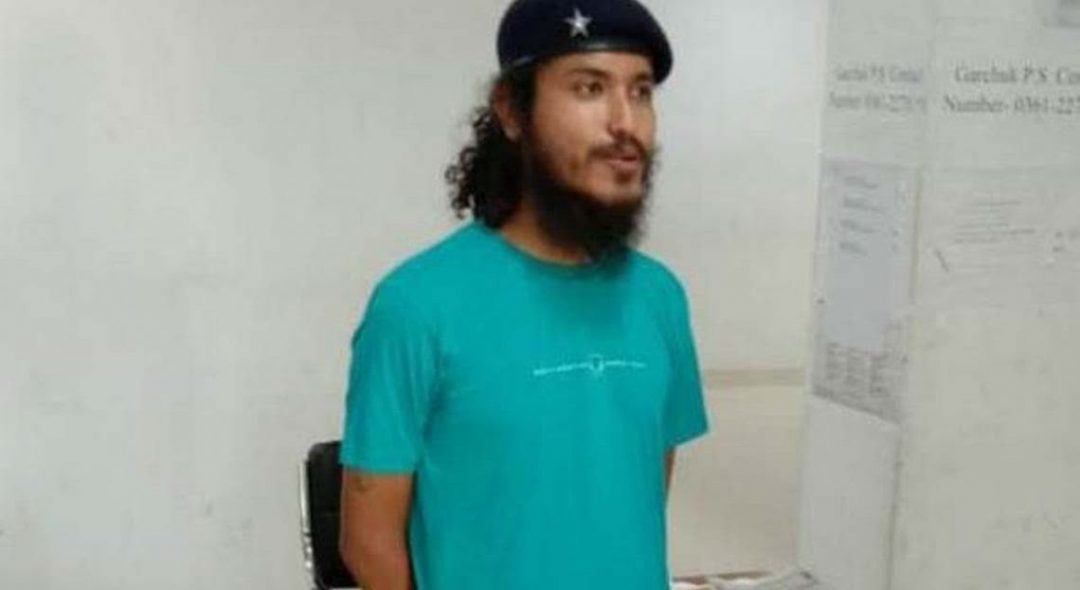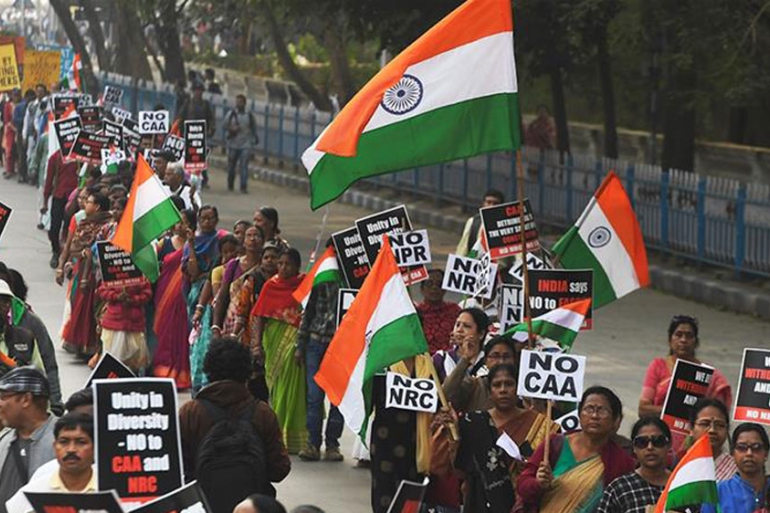These moves will have a chilling effect on the constitutionally guaranteed rights to freedom of association, expression and assembly.
By Prerna Dhoop & Vandana Dhoop
Members of the Bharatiya Janata Party’s student wing protest against Amnesty in Bangalore in August, 2016. | Sajjad Hussain/AFP
On September 29, the Ministry of Home Affairs issued a press release stating in uncertain terms how it viewed the operations of the human rights advocacy group Amnesty India.
“All the glossy statements about humanitarian work and speaking truth to power are nothing but a ploy to divert attention from their activities which were in clear contravention of laid down Indian laws,” the release alleged. “…India has a rich and pluralistic democratic culture with a free press, independent judiciary and tradition of vibrant domestic debate. The people of India have placed unprecedented trust in the current government. Amnesty’s failure to comply with local regulations does not entitle them to make comments on the democratic and plural character of India.”
Earlier in the day, Amnesty India, the local arm of the international rights organisation Amnesty International, said it had been forced to halt its operations because of a “witch-hunt” by the Indian government over “unfounded and motivated allegations” that resulted in its ban accounts being frozen.
Days before, on September 21, the Lok Sabha amended the act regulating how non-governmental organisations can receive foreign funds, ostensibly with the aim of “strengthening the compliance mechanism, enhancing transparency and accountability in the receipt and utilisation of foreign contribution”.
The Foreign Contribution (Regulation) Amendment Bill 2020 and the freezing of Amnesty’s accounts are not unrelated.
Chilling effect
To begin with, by creating overbroad, vague restrictions for NGO funding and operations, these moves will have a chilling effect on the constitutionally guaranteed rights to freedom of association, expression and assembly.
With the amendments, the government has expanded governmental discretion, bureaucratic control and oversight with respect to the day-to-day functioning of NGOs in India. For instance, it has reduced the cap on administrative expenses from the previous 50% of the funds received to 20%. It has also made it mandatory for organisations across India to receive all FCRA money only through an account in a Delhi branch of the State Bank of India, Delhi. It has also mandated the submission of a statement of expenses four times a year.
Under the garb of ensuring transparency and accountability, the government is seeking to choke NGOs with red tape so that they are unable to do their humanitarian work.
The FCRA amendment disallows Amnesty and other civil society organisations that receive foreign contributions from supporting the work of other NGOs. This makes it more difficult for grassroots NGOs that are independent of government, business, religion and political groups to operate in India.
With this, the government’s move has choked Covid-19 aid from flowing to the remotest corners of the country.
Amnesty’s office in Bengaluru.
But most of all, the government has made it clear that it will view with suspicion any organisations that seek to uphold the fundamental values of dignity, freedom, justice and equality for all. It will not allow any organisation to hold it to account and to demand that it protect and respect the rights of Indians.
That is evident from the manner in which it has choked the operations of Amnesty, an organisation that has used the international human rights principle of “naming and shaming” to compel states to comply with their obligations under human rights treaties.
In recent months, Amnesty India has issued reports that question the government about rights violations during the Delhi riots in February and about the situation in Kashmir after the abrogation of Article 370. In addition, it has engaged in advocacy, lobbying and campaigning; written letters, petitioned and protested against human rights abuses in India.
Repressing freedom
The passage of the FCRA Amendment Bill, 2020 and the actions against Amnesty place India next to only Russia, where the government has used the Foreign Agents Law, 2012 and Undesirable Organisations Law, 2015 as a weapon to repress freedom of association and expression. These laws have been used to pursue a systematic campaign against human rights organisations and NGOs in the country. In 2016, Amnesty was forced to suspend its operations in Russia.
Russia’s actions run contrary to the advice that was offered by Rabindranath Tagore during a visit to the Soviet Union. The Indian said that the Soviets should construct a social and political system that permits disagreement because, it would not only be an uninteresting but a sterile world of mechanical regularity if all our opinions were forcibly made alike”.
As Tagore also noted, “Opinions are constantly changed and rechanged only through the free circulation of intellectual forces and moral persuasion…Freedom of mind is needed for the reception of truth; terror hopelessly kills it.”
I would serve Prime Minister Narendra Modi well to pay heed to Tagore too and acknowledge the existence of differences of opinion.
Prerna Dhoop is a human rights lawyer based in Kolkata.
Vandana Dhoop is an independent researcher



